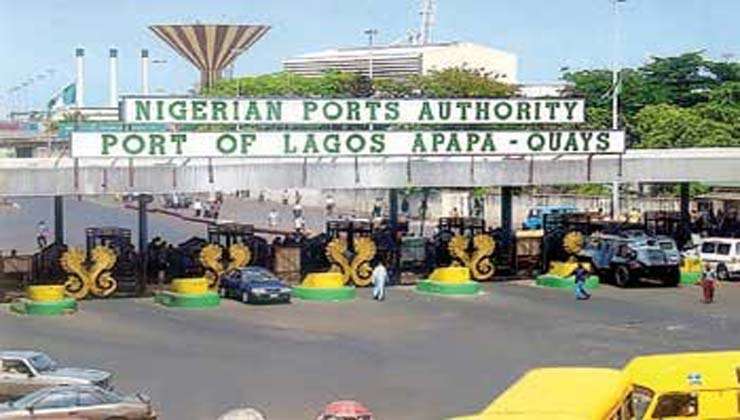
With the effort of the federal government to diversify the economy gaining momentum, it has emerged that the Nigerian Ports Authority (NPA), established the Export Processing Terminals (EPTs) and introduced Electronic Call-up system for export cargo to expedite the federal government’s drive.
This, analysts said, represents a major leap and improvement procedurally and cost wise in shipping export cargoes out of the country.
Recently, the NPA called for greater understanding among stakeholders, stressing that the current export regime would bring in stability to the logistics surrounding arrival of exports to our ports and shipment of export boxes out if the country.
Sources at the NPA told THISDAY that middlemen and those who have hijacked the important aspect of the export value chain are against the introduction of the Electronic Call-up (Eto) that would ensure stability and sanitise the export value chain.
According to the source, “We are deploying very similar strategy we used in addressing the gridlock along the port corridor for the EPT project and we are confident the end result will benefit genuine Nigerian exporters who were our primary focus when the policy was designed over two years ago. The fears being expressed are therefore misplaced except that the activities of middle men who have held the Nigerian export community captive over several years is about to be dismantled.
“The integration of the Electronic Call Up system and the Authority’s insistence that under the EPT regime call up shall be required for export trucks which will ingress the ports only through the EPTs and the visible and successful collaborative efforts between the Authority and Nigerian Customs Service (NCS), that will ensure enforcement of the directives in addition to the prospects of the integration of the CBN NXP procedures for greater accountability is sending jitters to middle men and those who have hitherto hijacked an important aspect of the export value chain, operating from non verifiable locations & expecting to be allowed to access the ports from those locations and who are not prepared for more visibility and accountability without a fight including blackmail is the reason for overheating the Eco system.
“For genuine exporters, while there are temporary teething problems that would soon be overcome, the EPTs represents a major leap and improvement both procedurally and cost wise. The NPA calls for greater understanding among stakeholders as we push for bringing stability to the logistics surrounding arrival of exports to our ports and shipment of export boxes.”
The source who do not want his name in print, further stated that the authority introduced the EPTs to ensure effective and efficient logistics and documentation procedure for export, bring export facilitation to acceptable best practices as well as providing regulated environment for quality control, product inspection certification and documentation.
“The intention is to bring our export facilitation to acceptable best practices as well as providing regulated environment for quality control, product inspection certification, documentation and appending of requisite customs sealing and other regulatory endorsement for onward departure for shipment. As part of efforts to support Government Agro-Export drive, the Nigerian Ports Authority took steps to improve the logistics surrounding the inflow of export boxes into the Ports including the loading and shipping of such export cargoes.
“To demonstrate government’s commitment at resolving the issues on the creation of specialized export logistics centers, the Federal government established a dedicated Customs command to coordinate the processing of export cargo at the EPTs from where any cargo cleared for shipment would access the port without interference or hindrance from any government agencies including Customs until the cargo is shipped, except where there is credible intelligence to the contrary.”
He added, “These EPT facilities are equipped with requisite equipment for weighing, Customs examination, stuffing, storage. Due to the space constraints at the main ports, which have exceeded their ‘as built capacity’ for cargo handling especially for ports in the Lagos area, the Export Processing Terminals were conceptualized to transfer all handling procedures in the ports to the Export Terminals.
“With the provision of Nigeria Customs Export Command and personnel deployed to cover all approved EPTs any export cargo originating from the EPTs is presumed to have concluded all terminal handling formalities and would only be accessing the port for a seamless loading on to the ship. The policy is currently at the experimentation phase, and we have witnessed tremendous success, which promises, a very bright future for ease of export cargo logistics processes. Aside from the Customs, the CBN plays a crucial role in export documentation process and there is an ongoing collaboration between the CBN and the Authority for an Electronic Data Interchange for documentation validation to ensure hitch free processing of export logistics. This ensures all export cargoes would have met the CBN NXP requirement for Forex declaration and repatriation back into the economy. As a new initiative, which may experience some challenges, the Authority is in continuous stakeholders’ engagement to allow for familiarization with the policy. Shipping lines have been mandated to establish an electronic interface with the EPTs, with a view to deploying available spaces and boxes to be picked by the particular voyage.”










